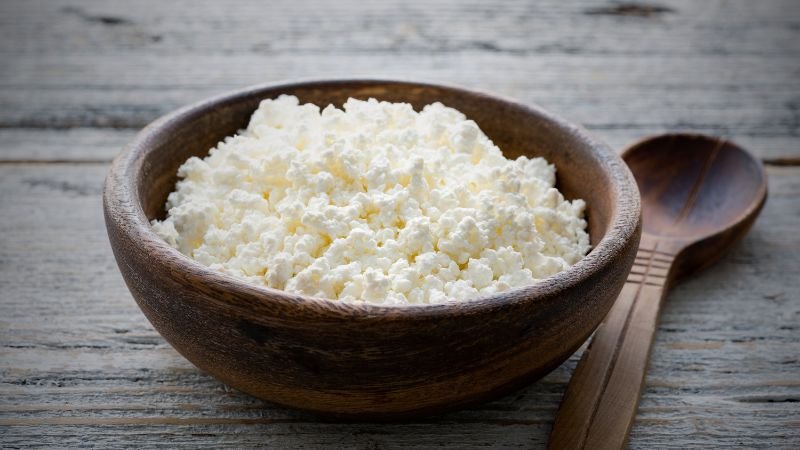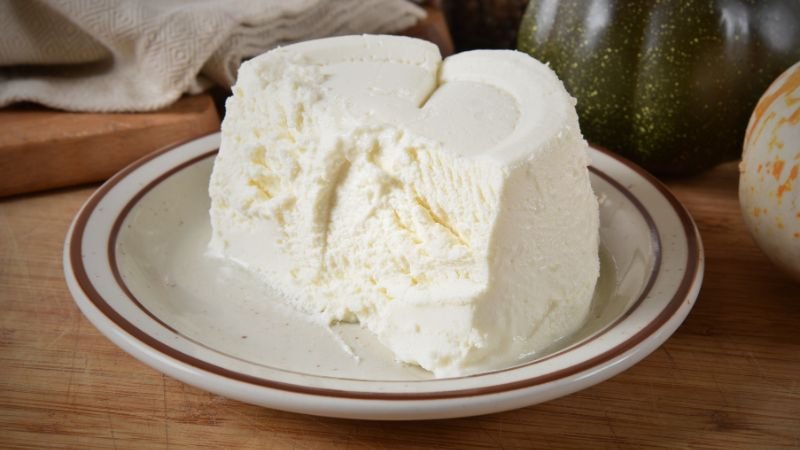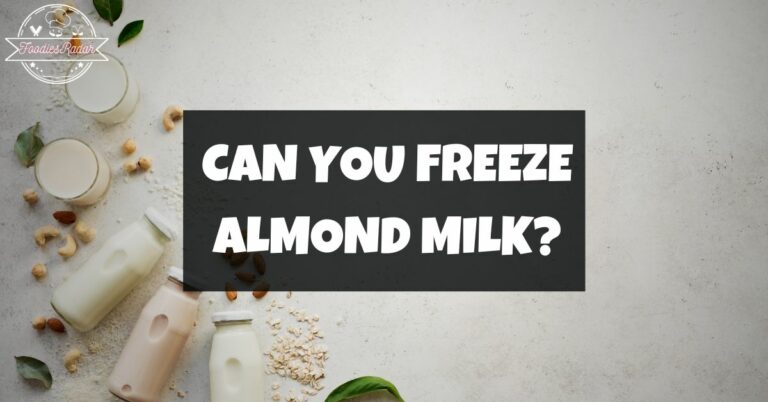
Cheese is a dairy product that comes in a variety of forms and almost innumerable textures. Formed by the coagulation of milk proteins, it is one of the oldest edible delights of human history made from the milk of sheep, goats, cows, etc.
As I’ve said before, cheese comes in a lot of varieties depending on the method of preparation and the ingredients used for milk curdling, and one type among the many varieties of cheese is the Ricotta Cheese.
Ricotta is a unique variety of cheese with Italian origins, and it is unique because it is made from leftover whey after the milk curds have been removed from the mixture. Below we will discuss how to freeze this unique cheese and if it is safe.
Can You Freeze Ricotta Cheese?
Most of the recipes which make use of ricotta cheese normally don’t allow you to use a lot of it in the dish. Normally the greatest amount of ricotta cheese a recipe is going to allow you for a certain dish will not be more than a garnish or a few tablespoons.

But in all markets, ricotta cheese is not stored in small proportions but in large tubs, so you’ll have leftovers that you’ll need to store somehow. You can freeze ricotta cheese, but it is not a good cheese to be frozen.
Is It Safe To Freeze Ricotta Cheese?
As far as health concerns regarding frozen ricotta cheese go, it is safe to freeze it, but it gets complicated for other things.
You’ll remember that a moment ago, I said it is not a good cheese to be stored in a freezer, and I said so because I had valid reasons.
Ricotta is a unique cheese made from whey instead of curds, and as whey is the leftover watery part of milk without proteins, the water content of Ricotta is also higher than the general water content which one expects.
And so freezing ricotta freezes the water with it, which leads to the degradation of the texture of the cheese and its unique taste.
How To Freeze Ricotta Cheese?
If you have an unopened container, then just simply put it inside your freezer, but if you are dealing with leftover ricotta, then start by stirring the Ricotta with a spoon so that it freezes more evenly.
Once you are done with stirring, remove the Ricotta out of its container and press it down with paper towels to drain all the extra water, which may degrade texture during freezing.
Once you are sufficiently drained the Ricotta of its water, wrap all of it in plastic (you can make portions if you like) and seal it in an airtight plastic bag for oxidation safety. After you are done sealing, put the cheese in your freezer and let it freeze.
How Freezing Affects Ricotta Cheese?
Freezing has a very negative impact on Ricotta cheese which is why you will never receive a professional recommendation that is in any way in favor of freezing Ricotta.
This is because ricotta is made from whey instead of milk curds, and it contains a lot of water. So when you freeze it, ricotta becomes ice because of its high water content, which changes its texture and taste.

As water freezes to become ice, it will form a boundary between the whey and whatever little curds are present in Ricotta.
Once the two components are separated, ricotta cheese will lose its coherence of texture and will taste different after defrosting.
How Long Can You Freeze Ricotta Cheese?
You can freeze ricotta cheese for as long as you like, so long as you don’t care about the drop in its quality.
Water freezes and separates curds from whey, the longer you keep ricotta in the freeze, the more of an incoherent texture it will develop.
You can store it in your freezer for probably a month or two before it completely loses its taste. Store it even further, and it might go bad because even in a vacuum at zero degrees centigrade bacterial activity doesn’t stop but is slow.
But in 2 months, even the greatly inactive bacteria would have fermented enough of the Ricotta to make it rancid.
Relevant context:
- Can you freeze camembert cheese?
- Can you freeze cream cheese? Will it last?
- Can you freeze cheese?
- Can you freeze cheesecake?
How To Defrost or Thaw Ricotta Cheese?
It is easy to defrost frozen ricotta cheese. Take the sealed bag in which you have placed the Ricotta out of the freezer and remove it.
Keep the plastic covering on and let the Ricotta rest in the refrigerator for about 6-7 hours. Do not let it rest for long because the melting water may degrade a lot of its characteristic texture.
A very useful tip in this regard is to never use frozen Ricotta cheese for garnishing dishes or dressing salads, use only fresh Ricotta for that. Frozen ricotta cheese finds its best use in cooking and not on anything where it’s eaten directly.
Final Verdict:
Ricotta is a unique cheese with a distinguishing texture, such a unique product should be treated with care suitable to its nature, and in that, I say that yes, even though it is a viable option to freeze Ricotta cheese, you should only do it when you have no other options of storage left.
Even when you have decided that you want to freeze your Ricotta, then you should do so appropriately by reading the detail of the procedure of freezing given above to do as much justice as you can to the Ricotta.
FAQs (Frequently Asked Questions)
Can I Freeze Ricotta Cheese & Then Use It For Lasagna?
Using Ricotta cheese in a lasagna can be considered one of the more sensible uses of it in comparison to spreading it over salads and other dishes.
By using Ricotta cheese in a cooked dish like lasagna, you might be able to conceal the loss in its texture due to freezing.
So yes, you can use frozen Ricotta cheese for lasagna.
Can You Freeze Store Bought Ricotta Cheese?
In short, yes. Yes, you can freeze store-bought ricotta cheese by simply putting it in the freezer if you haven’t opened the tub.
If you have opened it, then you will have to follow the detailed procedure explained above, and after that, you can never freeze an open tub of store-bought Ricotta cheese.
Does Freezing Ricotta Cheese Change The Texture?
Yes, absolutely. Ricotta Cheese is one of the worst cheeses to freeze, and that is mainly because of the loss of texture it suffers because of freezing.
It has a high water content which, when frozen, separates the curds from the whey and creates a noticeable loss of taste and texture.









